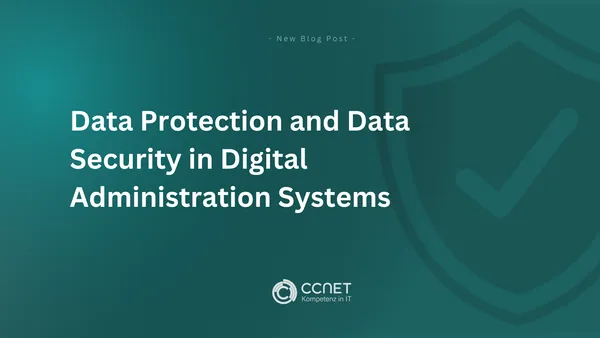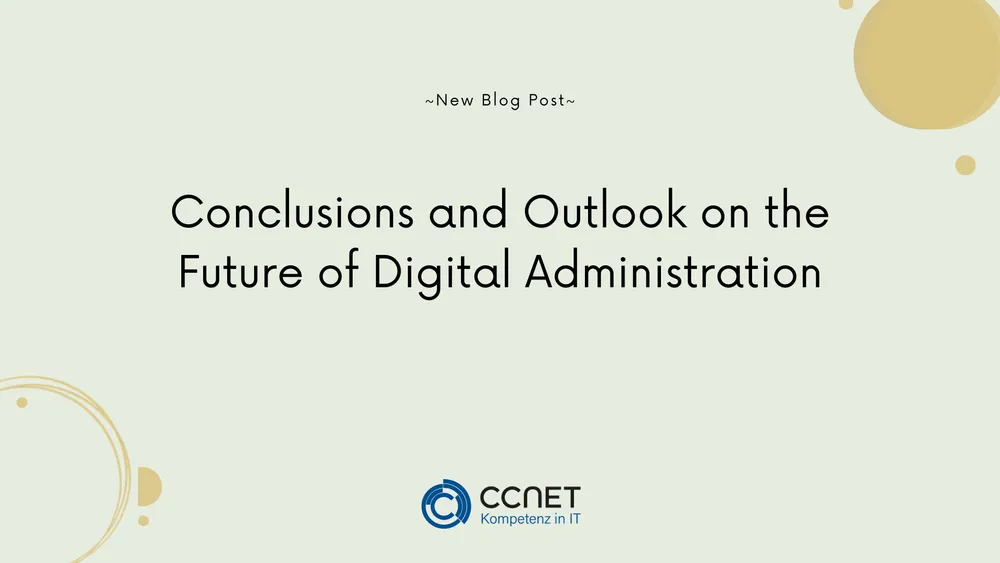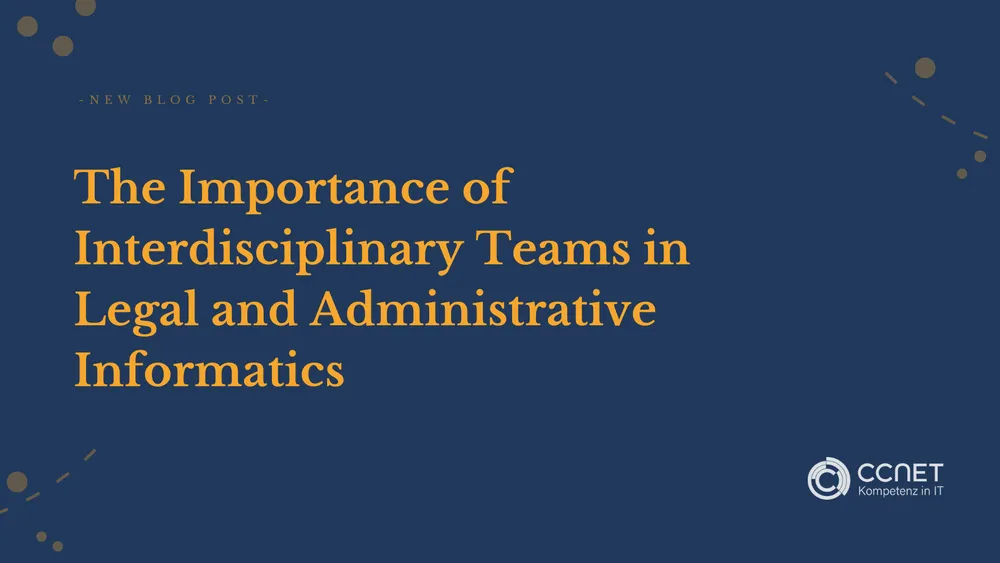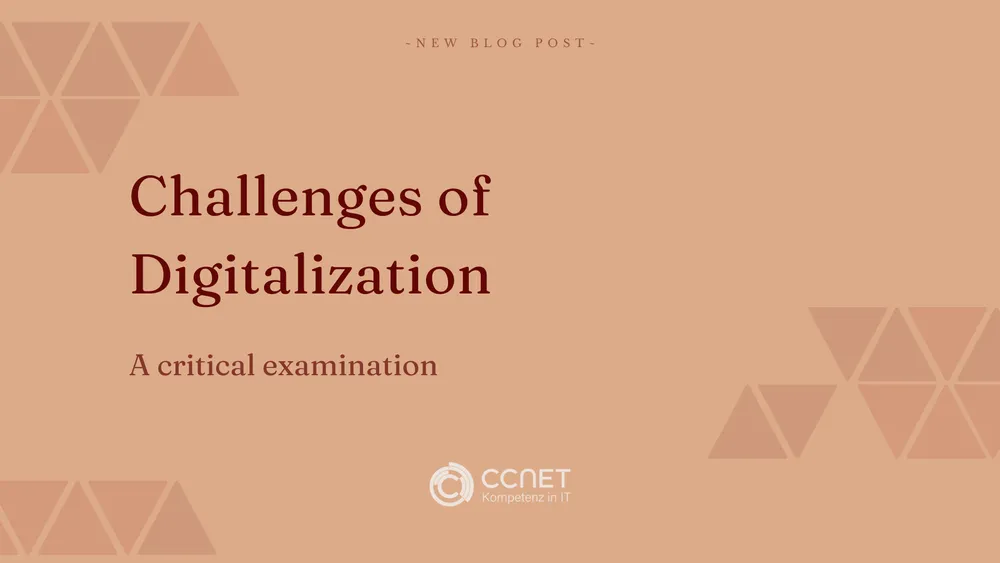
CCNet
Jul 29, 2024 • 2 min read

Data-Protection and Security in Digital Administration Systems: Challenges and Strategies
"The digitalization of public administration brings efficiency gains and better access to services, but it also introduces data protection and security risks. In this article, we discuss the challenges and solutions for protecting personal data and securing digital administration systems. Continuous monitoring and updating are crucial for combating threats. Data-Protection measures must be implemented effectively to ensure the safety of sensitive information."
Challenges of Data Protection
Digital administration systems process and store large amounts of personal data. Protecting this data is not only a matter of privacy but also a legal necessity. Data protection regulations, like the GDPR in the European Union, set strict guidelines for processing personal data and require administrations to implement appropriate security measures to prevent data misuse or loss and ensure the integrity of sensitive information.
Data Security in Digital Administration
The security of information systems is crucial for ensuring the confidentiality, integrity, and availability of the data stored in digital administrations. Technical and organizational security measures must be implemented to protect the systems against cyberattacks, data breaches, and other security risks. This includes everything from encrypted data transmissions to regular security audits, staff training in cybersecurity practices, and continuous monitoring of security infrastructure.
Specific Data Protection Measures for Digital Administration Systems
To meet data protection requirements, digital administration systems must be designed with privacy integrated from the ground up (Privacy by Design). This involves minimizing the data collected, ensuring transparency regarding data usage, and providing users with control over their data. Additionally, technologies like artificial intelligence and machine learning, which are increasingly used in digital administration systems, should be designed in a way that does not undermine privacy principles and comprehensively meets data protection needs.
Legal and Ethical Considerations
In addition to technical aspects, legal and ethical considerations must be incorporated into the design of digital administration systems. This includes compliance with national and international data protection laws as well as ethical guidelines for technology use. Given the rapid development of new technologies, continuous adaptation of legal frameworks is essential. Ongoing review and adjustment are required to keep pace with ever-changing technological and societal demands.
Collaboration and Standards
Compliance with data protection and data security in digital administration systems requires close collaboration between authorities, technology providers, and data protection experts. International standards and best practices can serve as a foundation for developing secure and privacy-compliant systems. It is important that all parties work together continuously to meet the growing demands of data protection and data security.
Conclusion
The protection of personal data and the security of digital systems are central pillars of a trustworthy digital administration. While the benefits of digitalization are clear, the associated data protection and security risks must be taken seriously and addressed through comprehensive measures. This is the only way public administration can fully capitalize on the advantages of digitalization without compromising the rights and security of citizens. Effective management of these challenges is crucial for citizens' trust in digital administration and its long-term acceptance.
How do you see the future of digital administration systems in terms of data protection and security? Are there specific technologies or strategies that you believe are particularly important for the further development of this area?


